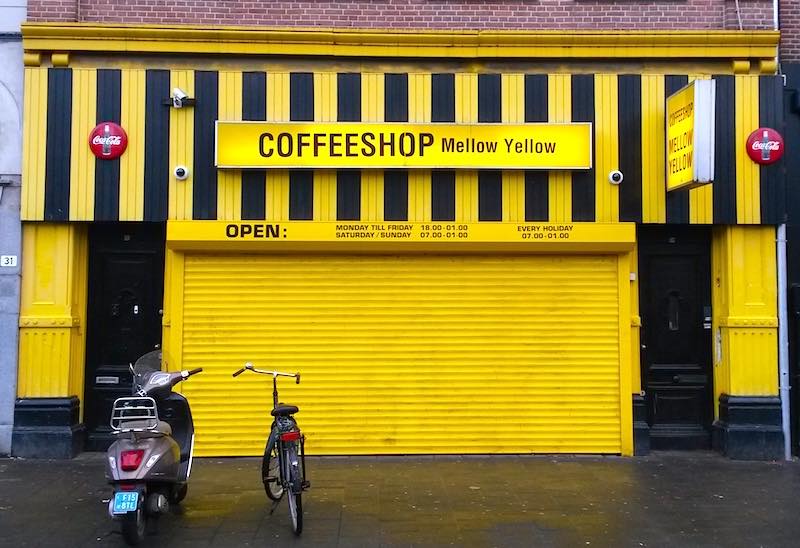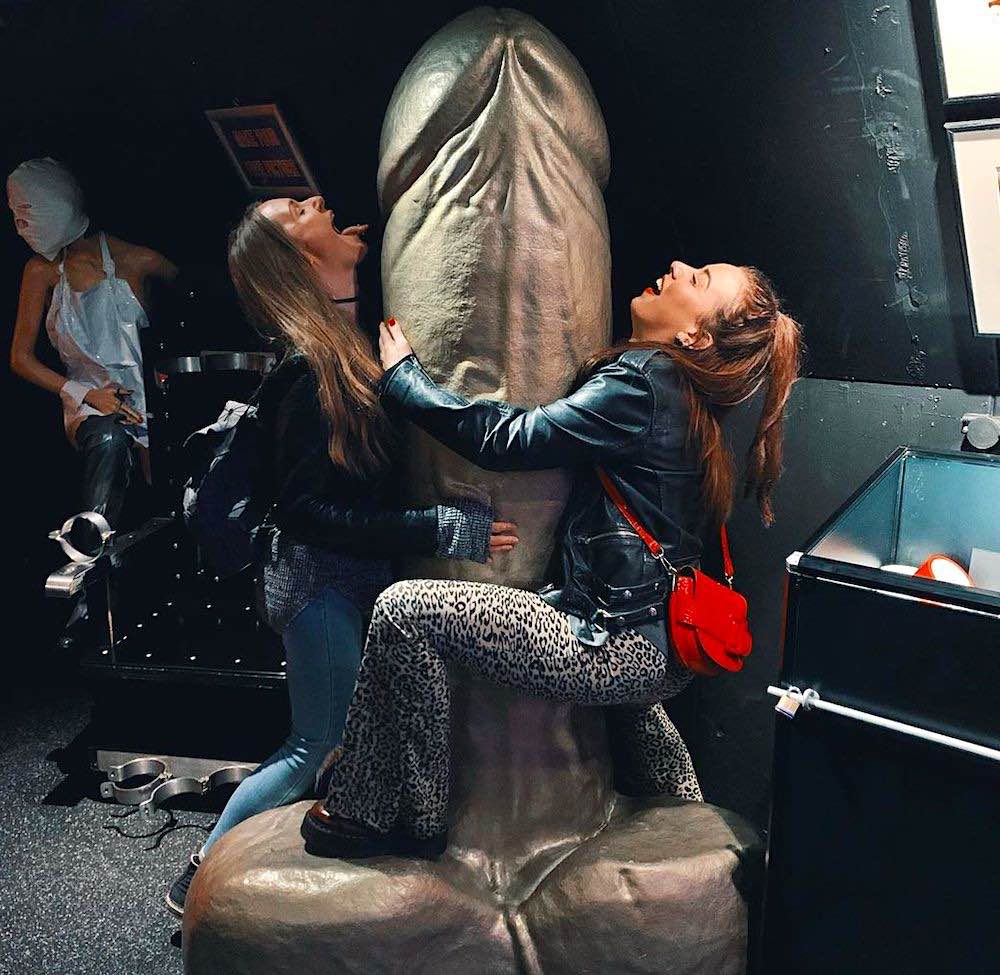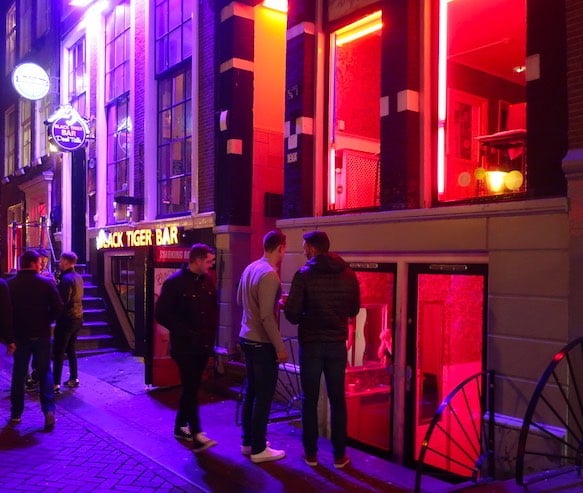Amsterdam Coffee Shops Closing Has Negative Effects
Posted on: janvier 13, 2017

Amsterdam Coffee Shops Closing, Not A Good Idea
It’s rush hour in Mellow Yellow on the last day of 2016. Italian tourists who just visited the Heineken Experience are crowding around the counter. Coffee shop owner Johnny Petram calmly weighs their order. Mellow Yellow is one of eight coffee shops that were closed in the first weekend of January 2017, by order of the municipality of Amsterdam. The reason for the Amsterdam coffee shops closing policy is just 230 meters away: a Barber Academy. Had it been just 21 meters further away, then Amsterdam’s oldest coffee shop – since 1972 – would have remained open. Johnny Petram has fought hard. Conversations with the local government, gathering signatures and lawsuits: it was all to no avail.
Dutch Political Trade-Off Led To Amsterdam Coffee Shops Closing Campaign
The closure is the result of a “trade-off” from 2012 between Mayor Eberhard van der Laan and former Minister Of Justice Ivo Opstelten. The minister wanted to implement the so-called “nationality test” nationwide, whereby foreigners would be excluded from purchasing cannabis. This policy was implanted to tackle drug disturbance in the border provinces of the Netherlands. Amsterdam managed to convince the national government that this criterion was unworkable in Amsterdam. In a deal with the Ministry of Justice it was decided to not introduce such a criterion, in exchange for more measures to curb cannabis use among young people. The most important criterion was the “distance test”; in a radius of 250 meters around primary schools or vocational schools no coffee shops would be allowed because the children could encounter cannabis that way.
 Coffeeshop Mellow Yellow on the Vijzelstraat in Amsterdam is closed down.
Coffeeshop Mellow Yellow on the Vijzelstraat in Amsterdam is closed down.
Amsterdam Coffee Shops Closing Down
The Mellow Yellow coffee shop is one of the eight shops that were part of the Amsterdam coffee shops closing action during the first weekend of January 2017, as a result of this deal. Meanwhile, the number of coffee shops in Amsterdam has been reduced from 350 in 1995 to just 167 in January 2017. Most of the coffee shops closed due to financial reasons or on grounds of public order. Around twenty other coffee shops had to be closed because of another Amsterdam coffee chops closing initiative: Project 1012, a project – started in 2007 – that tackled the monoculture in the Red Light District. Another 11 coffee shops were closed because of the distance criterion.
Statistics of Cannabis Coffee Shops in the Netherlands
At the end of 2014, the Netherlands had 591 coffee shops spread over 103 municipalities. The number of coffee shops decreased by 4.2%, compared to the previous measurement in 2012 – when there were 617 coffee shops. At the end of March 2015 there were 582 coffee shops in 103 municipalities in the Netherlands. The number of coffee shops has decreased in the largest cities (over 200,000 inhabitants). In 1999 there were 443 coffee shops located in these municipalities, while there were 297 in 2014. The average number of residents per coffee shop spread over 103 towns/cities was 32.459 by the end of 2014. This average is slightly higher than in 2012 (31 523).
Source: https://www.intraval.nl/
Coffee Shops Closed in Rotterdam
However, the effects of the measure are controversial. Research company Intraval did a study in 2015 commissioned by the city of Rotterdam on the effects of the “distance test” on schools. ”The closure of coffee shops has had no effect on the use of cannabis by students”, state representatives of the schools. Interval concludes that the proximity of coffee shops to schools does not have an effect on students and them using cannabis or not. Previous experiences in Rotterdam paint the same picture. The city already implemented the distance test back in 2009. This led to the closure of 16 coffee shops. A total of 45 remained open in the city of Rotterdam.
No Effects
An evaluation done in the autumn of 2010, once again by Intraval, is crystal clear about the effects of the distance test on cannabis use among students: zero. Amsterdam now has to deal with the reality of an increase in tourism and a decrease in the number of coffee shops. This has pushed the sale of cannabis back onto the streets again. The demand for cannabis has remained, according to the owner of Mellow Yellow. He points outside; where tourists smoke their first joint of the day.
Drug Rip Deals More Likely
An unexpected effect of the Amsterdam coffee shops closing is that the sustained demand for cannabis has led to much more revenue in the remaining coffee shops. The increased demand at the door leads to problems at the backdoor: “You must resupply several times a day,” says Ferry de Boer, “because the Dutch law only allows for one pound of cannabis, but these days 1.5 kilo in stock is already a tight supply”. The Bonger Institute of Criminology conducted a study last year on behalf of the cannabis industry on the impact of the closures. The Institute points out that those who need to get new stocks of cannabis are more vulnerable, because they are on the road more often and stand out more because of this. The chances of being mugged on the way (rip deals) increase, as does the risk of discovery by the police.
Tourists Become Prey Of Illegal Street Dealers in Amsterdam
Petram points out another consequence of the Amsterdam coffee shops closing: street dealers. “My coffee shop was located on a busy tourist route, but was the only coffee shop. You’ll soon get these little rascals here who store their cannabis stock in their scooters and start dealing with 5 grams in their pockets (the legally permitted amount in the Netherlands).”
According to the Dutch authorities, the street dealers entered the trade because of years of increasing tourism flows. The Bonger report agrees with that in part, but also suggest that Project 1012 is responsible. Foreign tourists are now a prey to street dealers, which nowadays even sell them fake drugs. The Bonger Institute expects that the street trade will increase even more because of the closure of more coffee shops in the future.
What Will The New Dutch Government Do?
Meanwhile, it is still questionable whether the municipality will now stop with Amsterdam coffee shops closing after these last 8 coffee shops. Although Mayor Van der Laan referred to the distance test as “symbolic politics”, at the same time he stated that he would abide by the previous agreement to show goodwill for a subsequent government.
The reason for this is simple: the distance test is anchored in the Opium Act, and a new Minister of Justice may still call for enforcement. A spokesperson for Mayor Van der Laan announced that in that case “the mayor will say he has had the exact same conversation with Minister Opstelten ‘who was receptive for our very reasonable arguments.” And with a progressive government Amsterdam could perhaps reopen 8 coffee shops again.
Petram won’t wait for that, and is already working on a new location for coffeeshop Mellow, because “the oldest coffee shop in the world should not be lost.” Would you like to learn more about the latest cannabis news in Amsterdam? Hear all about it during our walking tours in the Red Light District.
Source: https://www.nrc.nl/nieuws/2017/01/04/als-de-coffeeshop-sluit-gaat-de-handel-de-straat-op-6023362-a1539697 written by P. Zandstra
Others who read this article also read Undercover Police in Amsterdam Hunt Fake Drug Dealers & The Drug Test Lab in Amsterdam: An Exclusive Interview With August de Loor









